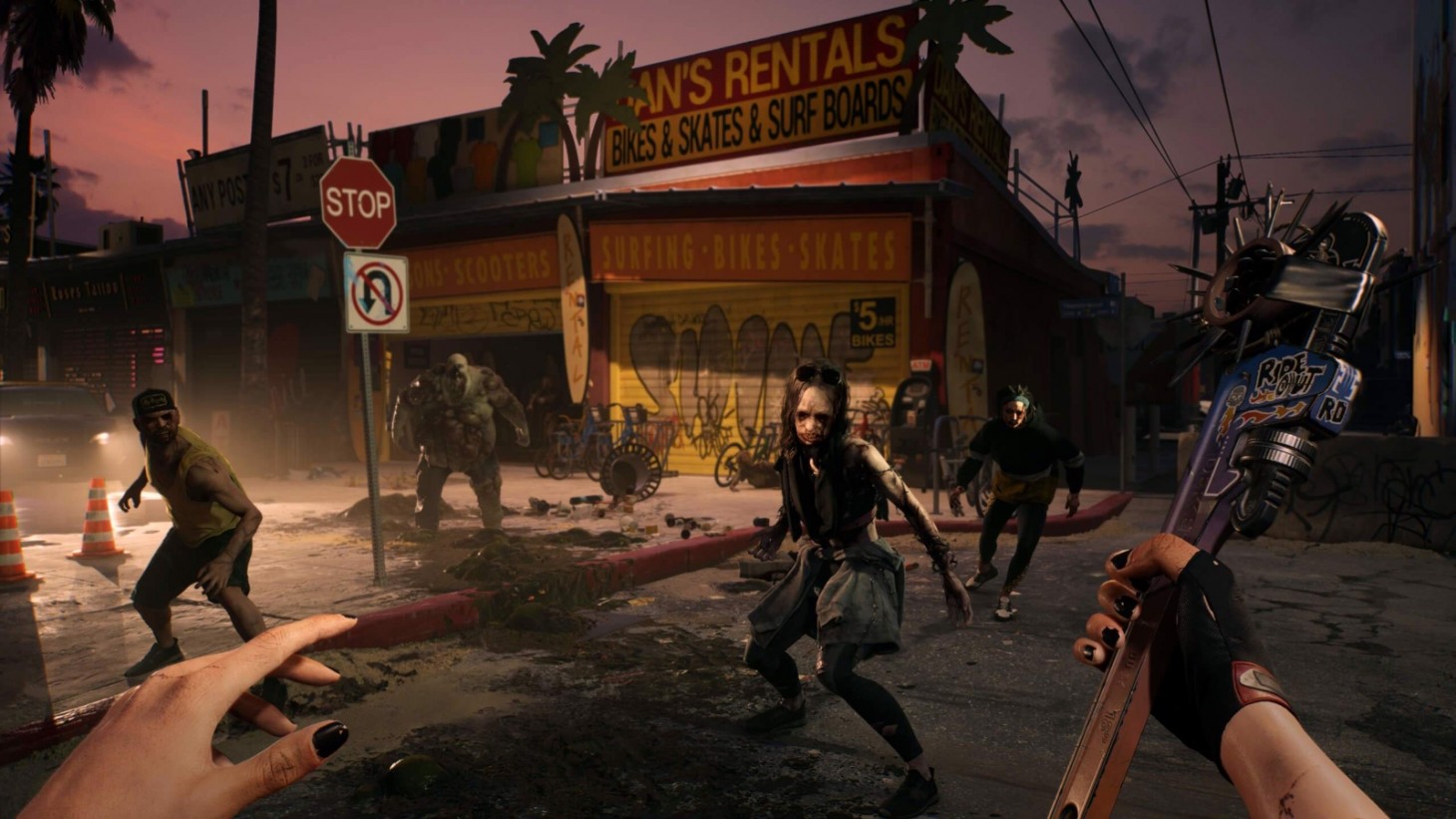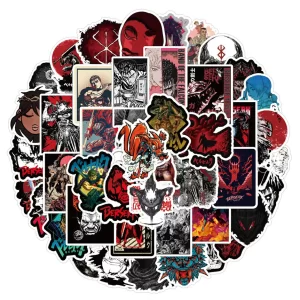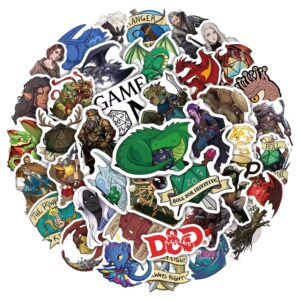Hype is a double-edged sword. On one hand, I love hype. I love feeling excited about the latest game in my favorite series, or a new developer’s beautiful, innovative project. On the other hand, hype can be abused by publishers and developers, leading to false promises or monumental expectations. In this list, we are going to discuss games that have been irreparably harmed from being overhyped.
These games aren’t necessarily bad- – in fact, some are quite good. Ultimately, however, they failed either commercially or critically due to the hype they received before their release. These aren’t games that were hyped up only for us to discover that they are actually terrible in the first place — the reason they failed has to be connected in some way to the hype the game received. So, Duke Nukem: Forever and Daikatana won’t be on the list, because they were just terrible games regardless of attention from the community and press alike.
So, let’s get to it. These are ten video games that were ruined by hype.
Source: Microsoft
Halo 4 was the first entry in the series developed by the newly-founded 343 Industries instead of Bungie, who had been developing the franchise for just over a decade. Halo 4, being a new iteration in one of the most iconic games in the shooter genre, was building up a lot of hype. And it even released to critical acclaim.
But fans were not happy.
Many complained about the weak, cheesy plot, and a multiplayer mode that seemed to indulge in a more generic format, stripping away what made Halo’s multiplayer so popular in the first place. However, it wasn’t as if these elements were particularly poorly executed — Halo 4 is a great game, but it changed key elements of the Halo formula.
If it wasn’t for the hype associated with a numbered entry in the Halo series, would it have been so poorly received by some? One can only speculate, but I’ll bet probably not.
9. Anthem
Source: Polygon
Anthem is the latest entry on this list and continues to disappoint players to this day. It may not have the quality that Halo 4 may have, but it is still a decent game. Repetitive, maybe, but its combat is excellent, and the suits are fun to use.
When the game was first announced, it immediately got everyone’s attention. BioWare is one of the best developers in the business, but their work has mostly been focused on expanding the Dragon Age and Mass Effect franchises. So, when it was announced they were working on an entirely new project, people were thrilled. Even when we heard that it would be multiplayer, we had faith that if anyone could blend story-oriented RPG gameplay with the online MMO format, BioWare could.
We were wrong.
Our faith turned out to be misplaced as the game was released to mediocre reviews. Neither the RPG or MMO elements were particularly great, and fans were left disappointed. Some swear that the game can still be a good time, but, to this day, post-launch content keeps letting players down. Regardless of your opinion on Anthem, you have certainly learned to stop being hyped for it.
8. Destiny
Source: Time
Dear Bungie,
Just because 343 Industries suffered from the hype of a new Halo entry didn’t mean you were safe.
Another bold experiment in incorporating a specific genre with the MMO format, Destiny, was supposed to be the next big thing. Promising to be an exciting space adventure and a stellar first-person shooter, enriched with social interactivity, Destiny proved to just be repetitive. The social aspects of the game were lackluster, and the story was not very engaging.
The gunplay was strong, as one could expect from Bungie, but it simply failed to deliver on its promises. It had its die-hard fans, but most were disappointed with the final product. The masses were turned off after the game failed to live up to the hype.
7. Mass Effect: Andromeda
Source: The Verge
Boy has BioWare had a tough few years.
The original Mass Effects make up the greatest trilogy of games ever made. Yeah, I said it. Regardless of what you thought of the ending of the trilogy (honestly, how could you ever end a story of that scope in a satisfying way?), each game is stellar. Therefore, when it was announced that BioWare was releasing a new Mass Effect, people went ballistic. The game promised improved character animations, morally ambiguous choices, and stellar gameplay.
Then, the footage started coming out. Before the game was even released, videos of terribly animated faces gave the game a reputation as glitchy and broken. The hype quickly transformed into hate as people believed their trust was betrayed.
The thing is Mass Effect: Andromeda is actually a really good game. Playing a few months after its release, after a couple of patches, I personally almost never experienced any serious glitches. However, since the game was so hyped up, anything short of a masterpiece would have disappointed fans. The fact that the game was released in a less-than-optimal state did nothing to alleviate the disappointment. The game sold poorly, and who knows when we will see another entry?
6. Dead Island
Dead Island was so hyped up simply because of its stellar reveal trailer. The trailer shows the death of a child in reverse, from the moment she died back to her fleeing hordes of zombies only minutes before. The music is beautiful, the animation is pristine, and the whole thing is incredible. Everyone became excited about this emotional, grounded zombie gaming experience.
The issue was that the game was literally nothing like that.
The game actually involved curb-stomping zombies, listening to rap music, and setting my barbed-wire bat on fire. The game wasn’t actually bad, though. Some can argue that it’s actually a good game. However, the hype for the game was the result of the trailer, so people were excited for a much different game than what the final product turned out to be. Feel free to play Dead Island. It offers a good time, but don’t expect emotions to be any factor in this ultimately generic zombie game.
5. Homefront
Source: Steam
Homefront, in many ways, dug its own grave. As the supposed next big first-person shooter, multiple marketing ploys were used to promote the game. The first was claiming that they had the writer of the film Red Dawn, John Milius, writing the game. However, this wasn’t true. Although Milius gets credit for the game, he wasn’t nearly as involved as the publisher THQ made it sound.
And then there’s THQ‘s red balloon stunt. To promote the game, they released a massive amount of red balloons in the Bay Area of San Francisco. The balloons eventually deflated, landing in the water, harming the wildlife. The company was fined thousands of dollars as a result.
Regardless of the disastrous execution of all of this, it did bring attention to the game. People began to feel hyped for the next big shooter.
What finally released was… good. When you pressed the trigger, people died, and when you threw a grenade, it exploded. It really was a very standard affair. However, standard simply wasn’t going to cut it for the amount of attention and hype the game received.
4. Spore
Source: Electronic Arts
Spore was supposed to change things. A game that followed the evolution of life from a cell to an intellectual, creative being, Spore was grand in scale. You progress through the game by choosing by which methods you will survive, and your species will either succeed or fail based on your choice of species traits.
With something so ambitious, people were obviously excited. Creating your own species sounded awesome, and the game sounded not only long but also like something you would be willing to play many times over.
The game then released and did get positive reviews. Regardless, people were disappointed. They argued that for something so ambitious, the gameplay was surprisingly simplistic. It seemed to be a collection of minigames rather than a single, cohesive game. Evolution just wasn’t as fun when it was only at the push of a button, absent of any challenge or complexity.
Therefore, Spore is thought of in mostly negative terms. People look to Spore as a game full of broken promises, unfulfilled ambition.
3. Watch Dogs
Source: Forbes
Remember when Watch Dogs was supposed to be the next Grand Theft Auto? It really was a huge deal. What was promised was an open-world game where the city was at your fingertips.
Instead, we got a decent open-world game.
Watch Dogs is not bad by any means, but it does nothing to shake up the formula. The hacking elements were too simplistic (relegated to one button to hack a limited number of things) to significantly change how you interact with the world. Everything else is the same as other similar titles, except with mediocre driving mechanics and a lackluster story.
Therefore, when people got their hands on the next big open-world title, one that was supposed to give Grand Theft Auto a run for its money, people were incredibly disappointed. They got an entertaining, but ultimately generic, experience instead. That disappointment leads to anger with Ubisoft and with the game itself.
2. Fable 1-3
Source: Microsoft
I know this is cheating, but every single entry in the Fable series has been a victim of overblown hype. In fact, Fable‘s creator, Peter Molyneux, has earned a reputation for building hype based on unfulfilled or even impossible promises.
Each game has had its own set of broken promises, so it could theoretically take up nearly a third of this list. Claims that an acorn that fell from a tree would, over the course of the game, grow into its own tree dominated Molyneux’s publicity of the game. These were incredibly ambitious claims, especially with the technology he was working with while making the Fable series. However, the claims were just plausible enough for everyone to get incredibly excited.
Each time, for all three games in the series, people were disappointed. Features that were promised never made it into the game, and it felt at times more like a typical RPG than something revolutionary.
Here’s the thing: all three Fable games are actually great. I loved my time with each one. And there exists mechanics within these games that can’t be found elsewhere, or at least in as much detail. But the quality didn’t matter. Hype built on broken promises leads to angry gamers, and you can’t really blame them.
1. No Man’s Sky
Source: Microsoft
What else could possibly be number one on this list? No Man’s Sky’s release was an absolute disaster. Lawsuits eventually began popping up as more and more people realized that No Man’s Sky was nothing like what the hype promised.
Gameplay trailers looked incredible. Unfortunately, they either showed or described opportunities in the game that simply didn’t exist. It certainly didn’t help that the game got widespread attention, with Hello Games founder Sean Murray, promoting the game on shows such as The Late Show with Stephen Colbert.
The game eventually released to mediocre reviews. People complained that it had a menagerie of glitches, and that’s its gameplay was repetitive. However, most people pointed out the lack of promised features and quality promised before its release.
The crazy thing is that, after a series of large updates, the game is actually quite good now, fulfilling many of its initial promises. However, the damage done to the game’s reputation due to the hype means that No Man’s Sky will never fully recover from its first impression.
What do you all think? Are there some games not on this list that you have played that just didn’t live up to the hype? Or do you love the above games despite their shortcomings? Let us know in the comments below!













